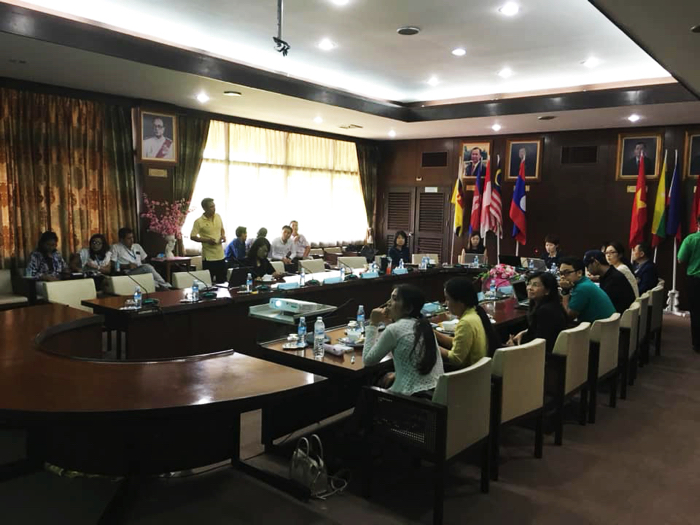- Project Leader : Watanabe Osamu (Teikyo University of Science, Department of Medical Sciences)
- Collaborators : Jiraporn Chompikul (Mahidol University, Asean Institute for Health Development)
- : Nuanpan Pimpisan (Nakhonratchasima hospital)
- : Kawamori Masato (Osaka University, School of Human Sciences)
- : Kimura Yumi (Osaka University, Graduate School of Human Sciences)
- : Sakamoto Ryota (Kyoto University, Center for Southeast Asian Studies)
- : Kwanchit Sasiwongsaroj (Mahidol University, Research Institute for Languages and Cultures of Asia)
Outline of Research
Thailand is aging prominently as a result of both a substantially longer life expectancy and declining fertility rates. This poses a problem for Thailand as the needs of the elderly outweigh the number of caregivers. The number of elderly who are suffering from non-communicable diseases has also been increasing. In order to combat this issue, hospitals have begun to push for early discharges of patients. This causes a shift in the care structure from hospital care to more informal care. This, in turn, raises the demand on family members to become caregivers for the elderly. Therefore, the objectives of the current study are to identify factors associated with the feeling of burden among family caregivers looking after dependent elderly in Thailand and to clarify the magnitude and nature of the associated stress in order to develop strategies for alleviating their burden.
Description
When I worked in the home care field as a physical therapist, I strongly felt that elder care was not only a problem for family members and medical staff, but also for the surrounding community, which is greatly influenced by social background.
In this research, we believe that there is an academic novelty in working together with collaborative researchers from many fields and focusing on the level of burden to caregivers in Thailand in order to propose measures based on the results.
Last year, I visited Nakhon Ratchasima Province in Thailand and conducted interviews with family caregivers to assess family caregiver burden and the determinant factors. This year, the results obtained will be analyzed with co-researchers and local staff members, by exchanging opinions and taking solution programs into consideration to apply to the communities. Specifically, training for family caregivers, living environment improvement (including housing repair and welfare tools), disease management (oral nutrition management such as aspiration pneumonia prevention), and constructing preventive community systems (such as day care and home visits) will be considered. This analysis may contribute to future measures in other Southeast Asian regions where the declining birthrate and aging population is progressing and the family structure is changing in the same way as Thailand.


